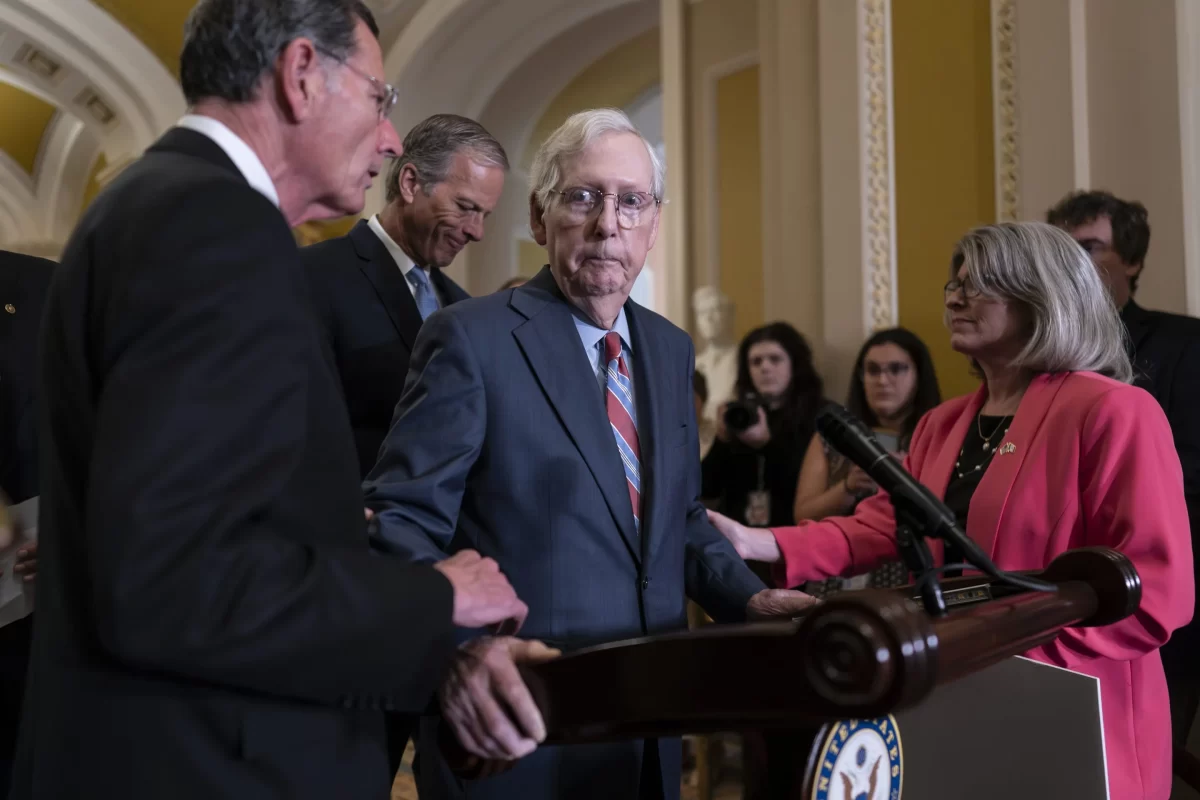As the ends of political polarization split further, opposite ideologies find common ground in one belief: Congress is too old. The concerns are justified, but the popular solution of outright age limit is misguided.
Worrisome moments blazed into recent memory paint a picture of Capitol Hill as a dementia-ridden retirement home; over the past year, Senate Minority Leader Mitch McConnell suddenly disoriented while facing the press, freezing and spacing out mid-thought before being ushered off by his fellow senators; the now late Senator Dianne Feinstein, confused during a Senate vote, repeatedly urged by her aides to “just say aye,”; going back a few years ago, the late Senator John McCain nonsensically tripping over his thoughts at a hearing, asking former FBI Director James Comey a bizzare set of questions. These are just the publicized and scrutinized accounts. 34 Senators and 72 House Representatives are 70 years old or older. Many of our representatives suffer from these same moments of apparent senility, to much less media attention.
Recently, I witnessed it firsthand. House Representative of 25 years and counting Jan Schakowsky came to speak to Niles North AP Government classes. In the most respectful way possible, she was a bad politician. Her public speaking was disjointed and uncaptivating, with odd pacing and confusing points of emphasis. She confused herself, misnaming House Speaker Mike Johnson as Mike Thompson twice, and seemingly blanking on Chicago Mayor Brandon Johnson’s name. Clearly, at one point in her career, she was much sharper; that’s how you come to be as distinguished as she is. But today, she is 79 years old, and the rust shows. Yet, as certain as anything, she will win her upcoming re-election bid by leaps and bounds, and every one after that. This same predicament parallels nationwide. Frustration for our increasingly octogenarian and out-of-touch government reaches all-time highs, yet, the incumbency reelection rate is as high as ever. How can both be true?
The popular solution is age limits. A Pew Research Center poll conducted last summer found that 79% of Americans support age limits for Federal elected officials, but it isn’t that simple. It doesn’t reach the root of the problem: endless terms. The overpowering incumbency advantage of Congress coupled with no term limits is the cause of the hoarding and harbouring of olden and out-of-touch politicians.
Take our House Representative Jan Schakowsky for an example. Schakowsky won her House seat in 1999. Her strong leadership kept her there, continuously winning her re-election bids. Her tenure grew, and so did her influence and recognition among her party and constituents. Speaking generally, with tenure comes aging, and oftentimes with aging comes mental falter and an increasing loss of touch with society. Yet, by the time these features set in, the representative’s incumbency advantage has grown even stronger as their experience and influence has grown.
The Illinois 9th District, like most Districts in the United States, is dominated and will always be dominated by one party: Democrats. No rising Republican could ever challenge Schakowsky for her seat, regardless of merit. Within her own party, no rising Democrat could ever challenge Schakowsky for her seat because her influence and platform has grown so overwhelmingly strong, regardless of merit.
While Presidential candidates are scrutinized constantly, Congresspeople are hardly. Congressional election attention and voter turnout is measly, and someone like Schakowsky goes almost entirely unchecked and unchallenged. And each time she wins reelection, her case for the next grows even stronger as her experience strengthens. It is a continuous, unlimited snowball of Congressional tenure, not stopped by anything but the rare resignation of power or death itself. Schakowsky is one close-to-home example, but tens if not hundreds of Congress members run through this deeply broken system, and the result is a Congress filled with members that seem to have lost their qualification yet remain in their seat. We watch and scratch our heads, but it didn’t happen overnight.
Oftentimes, this political rusting correlates with age, but age limits are not the solution. While 82-year-old Mitch McConnell may space out and forget where he is mid press conference, 82-year-old Bernie Sanders remains one of the most sharp and politically trailblazing politicians in the country. If a candidate of his age brings something deeply valuable to the table as he does, who are we to turn them anyway simply on the basis of age? Age has varying affects on cognitive ability and ideology, it can’t be addressed with a general limit. Much of our Congress today feels borderline senile not simply because they’re old, but because they’ve grown old and gone unchecked. We need term limits to put a stopper on these snowballing tenures before they grow out of control.
In an ideal world of proper political participation, none of this is necessary. Representatives can serve for as long as they can properly contribute, and the moment they are no longer able to, we as voters weed them out in the next election cycle and remove them from office. But if the troubling state of Congress today is any indication, we are being crushed under that weight of responsibility. Much of the United States Constitution and its amendments are set up to protect us from ourselves and our own judgment. That is why the two term limit was officially established for the Presidential office in 1951. That is why term limits for Congress are necessary today.









